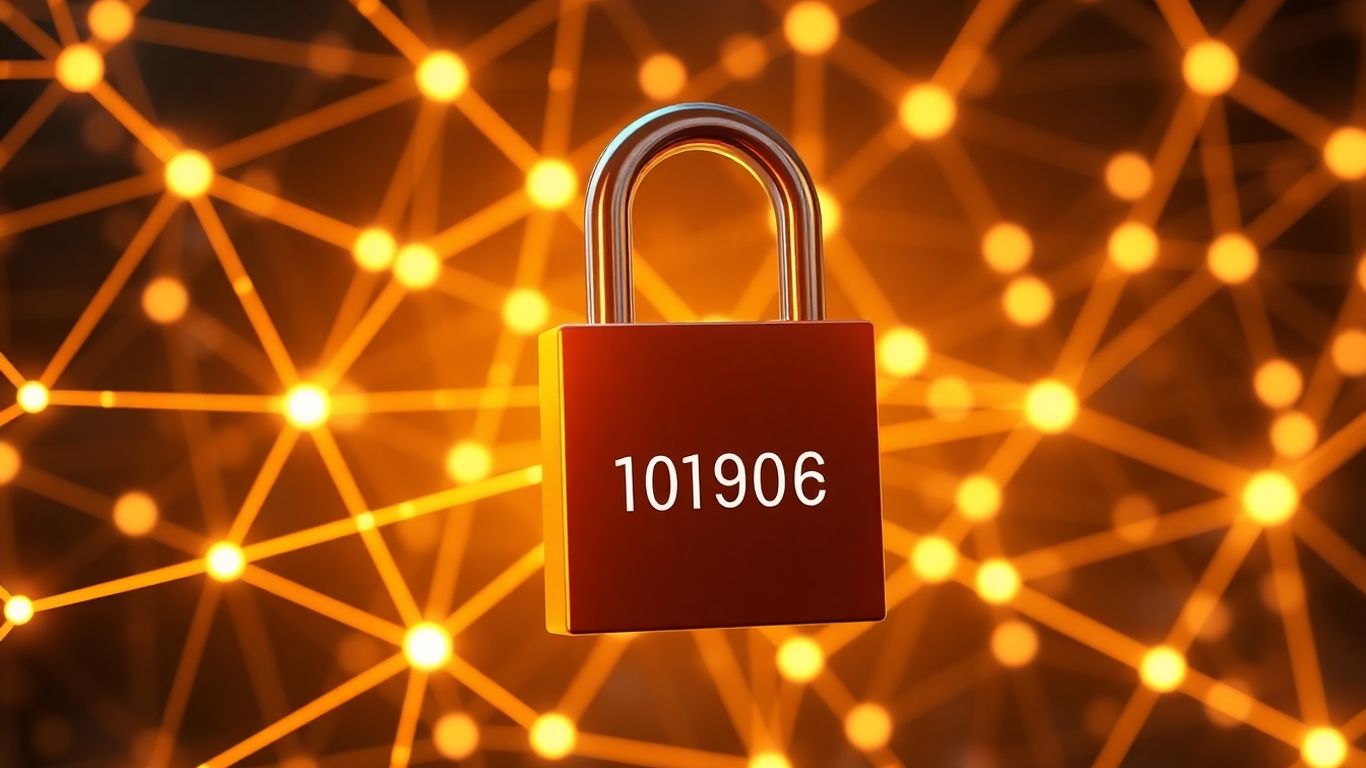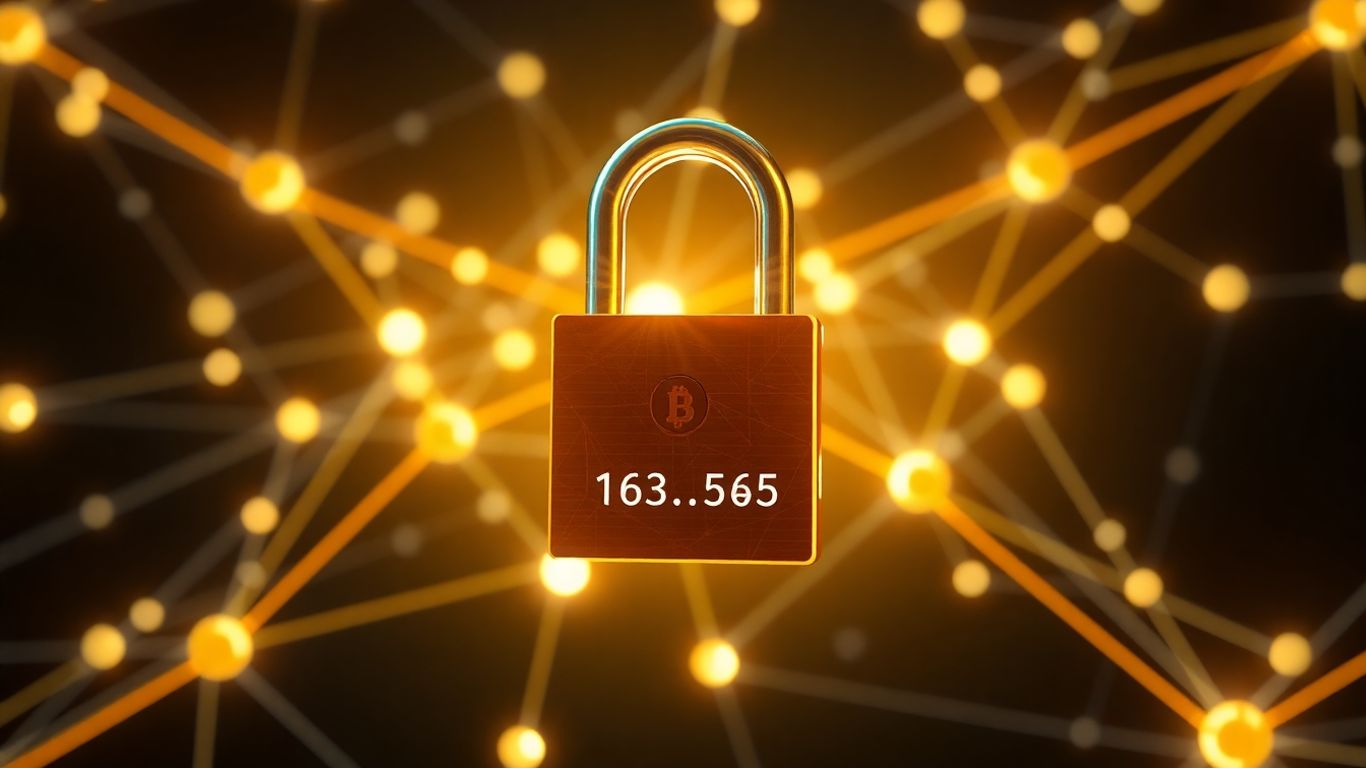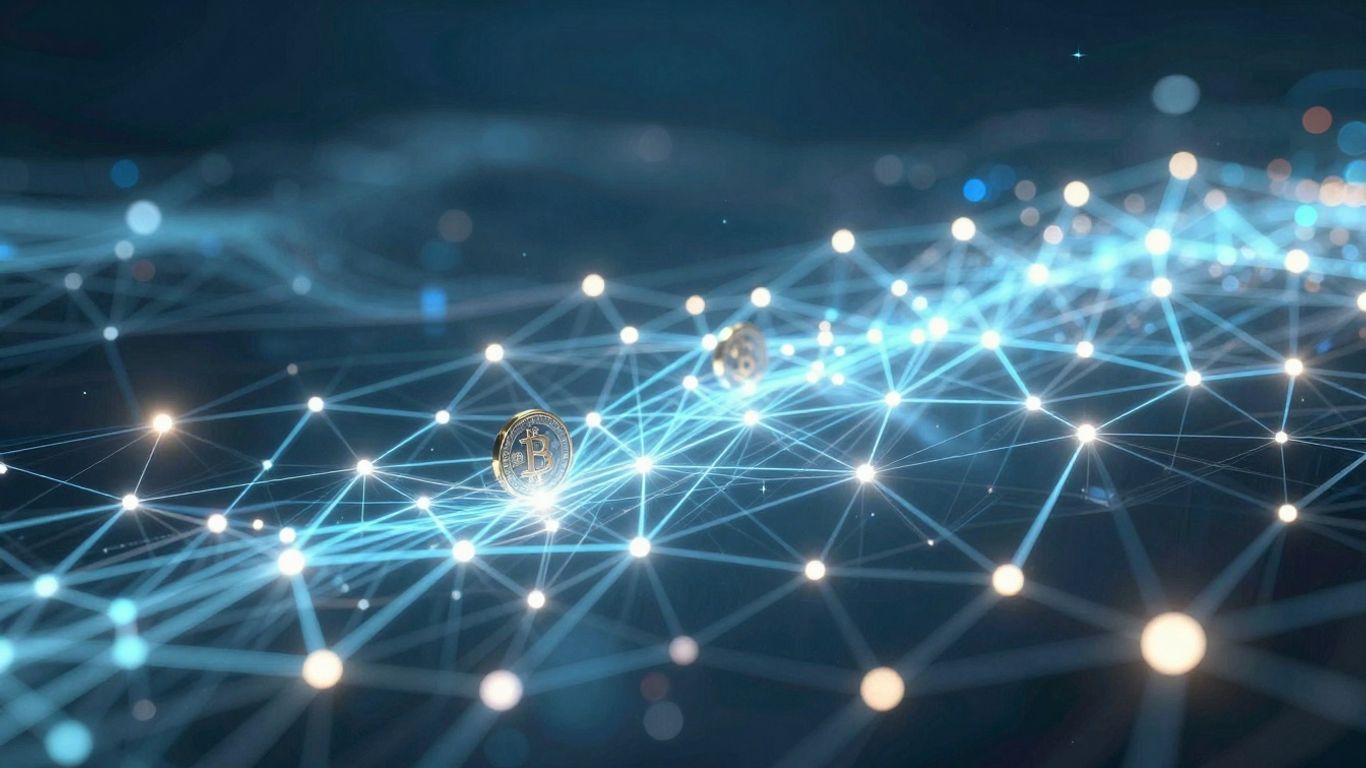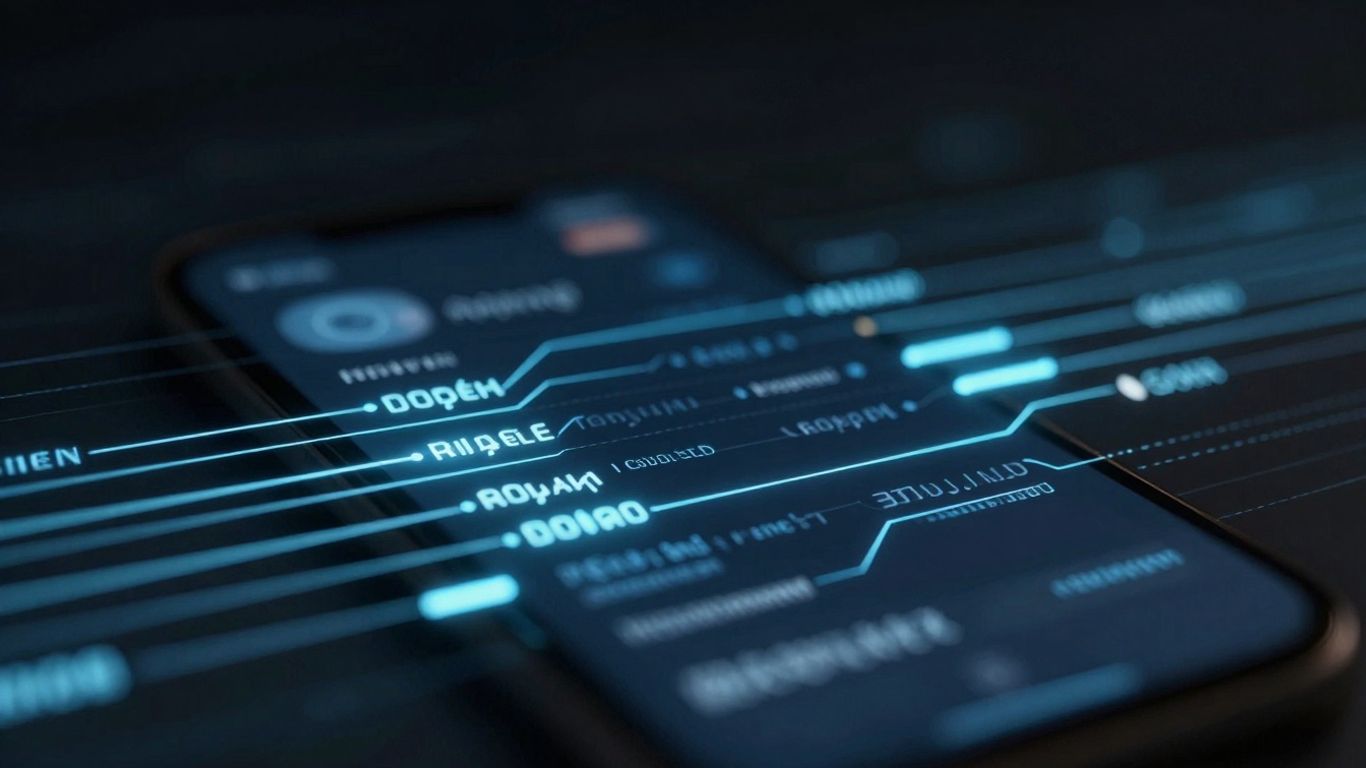[ newsletter ]
Stay ahead of Web3 threats—subscribe to our newsletter for the latest in blockchain security insights and updates.
Thank you! Your submission has been received!
Oops! Something went wrong. Please try again.
Learn what is a contract address in crypto, why it's crucial for security and transparency, and how to identify the correct one. Essential for DeFi and NFTs.





So, you're hearing a lot about crypto and blockchain, and maybe you've even bought a coin or two. But then you see something called a 'contract address' pop up, and it sounds a bit confusing. What is a contract address in crypto, anyway? Think of it like a specific mailing address for a digital program on the blockchain, not for your personal coins. This address is super important because it's how everything related to a particular digital token actually works. Let's break down what these addresses are and why they matter.

Think of a contract address like a unique mailing address for a specific program running on a blockchain. This program, called a smart contract, is essentially a piece of code that automatically executes when certain conditions are met. When a smart contract is used to create and manage a cryptocurrency token (like those built on Ethereum, for example), that contract gets its own address on the blockchain. This address is how we find and interact with the code that controls a particular token. It's not where your personal tokens are stored; instead, it's the digital location of the rules and logic governing that token's existence and movement.
Smart contracts are the backbone of many crypto innovations. They're like digital agreements that live on the blockchain and run exactly as programmed, without any need for intermediaries. When it comes to tokens, smart contracts define everything: how many tokens will ever exist, how they can be transferred, and what happens in different scenarios. They automate processes that would otherwise require a central authority, making things faster and more transparent.
Contract addresses really took off with platforms like Ethereum, especially after the introduction of token standards like ERC-20. Before these standards, creating and managing tokens was a bit of a wild west. ERC-20 provided a common blueprint, a set of rules that developers could follow to build tokens. This standardization meant that wallets and exchanges could easily recognize and work with different tokens. As part of this system, each new token contract deployed onto the blockchain was automatically assigned a unique address, making it identifiable and accessible to everyone on the network.

So, you've heard about contract addresses, but how do they actually work? Think of them as the unique postal codes for smart contracts on the blockchain. When a developer wants to create a new token, like a digital collectible or a new kind of currency on a platform like Ethereum, they write a smart contract. This contract is basically a set of rules and instructions that govern how that token behaves – how it's created, how it can be sent, and so on.
When this smart contract is ready, it gets 'deployed' onto the blockchain. This deployment process gives the contract its own permanent, unique address. This address is the contract address for that specific token. It's not tied to any one person, but rather to the code itself. Anyone who wants to interact with that token – whether it's to send it, receive it, or check its balance – needs to know this address. It's like needing the right street address to send a letter.
Here’s a simplified look at the process:
This contract address also plays a role in how we trust and verify things. Because the blockchain is public, anyone can look up a contract address. This means you can see the code (or at least its verified version), check its transaction history, and see how many tokens are associated with it. It’s like having a public ledger for the token. For the developers who deployed the contract, they usually hold the 'keys' that allow them to make certain changes or execute specific functions within the contract, but the address itself is public information.
The public nature of contract addresses is a big part of what makes blockchain transparent. You can see where the code lives and how it's being used, which helps build confidence in the token's legitimacy.
Standards like ERC-20 on Ethereum are super important here. They provide a common blueprint for creating tokens. Because most tokens follow these standards, they all know how to 'talk' to each other and to different applications, like crypto wallets and decentralized exchanges. The contract address is the specific identifier that allows these different systems to find and interact with the correct token contract, no matter who created it. It’s like having a universal plug type for electronic devices; the contract address ensures that your wallet knows exactly which token you're trying to add or trade.
So, we've talked about what a contract address is and how it works. Now, let's get into why these things are actually important. It's not just some technical detail; they play a big part in how the whole crypto world operates.
One of the biggest draws of blockchain technology is its transparency, and contract addresses are a big part of that. Every transaction involving a token, from creation to transfer, is recorded on the blockchain and linked to the contract address. This means anyone can look up an address and see the activity associated with it. It's like having a public ledger for every token. This openness makes it much harder for bad actors to hide shady dealings. This public record helps build trust because you can verify what's happening.
Think of it like this: if you're buying a used car, you'd want to see its service history, right? A contract address on the blockchain is kind of like that service history for a token. You can see where it's been and what it's been up to.
Decentralization is a core idea in crypto, meaning no single entity has complete control. Contract addresses help make this happen. Because these addresses are public and interactable by anyone, they allow for direct interaction with tokens without needing a middleman. You don't need a bank or a central authority to send or receive tokens; you just interact with the contract address. This cuts out intermediaries, which can make things cheaper and faster, and it puts more control directly into the hands of users.
Here's how they help decentralization:
In the wild west of crypto, spotting fake tokens or scams can be tough. Contract addresses are a key tool for verifying that a token is legitimate. When a project launches a token, they'll usually share its official contract address. By checking this address on a blockchain explorer, you can confirm details like the token's name, symbol, total supply, and transaction history. If you're looking to add a token to your wallet or trade it, finding and verifying the correct contract address is a critical step to avoid falling for fake tokens designed to steal your money. It's a simple but powerful way to add a layer of security and confidence to your crypto activities.
So, you've heard about a cool new token or a decentralized app (dApp) and want to interact with it. Great! But before you send any crypto or try to add a token to your wallet, you absolutely need to make sure you're using the right contract address. Getting this wrong can mean losing your funds, and nobody wants that.
Finding the official contract address is like finding the right key for a specific lock. It's the unique identifier that points directly to the smart contract managing a token or dApp. So, how do you actually find it?
Always cross-reference the address from multiple trusted sources before using it.
This is where things get a bit dicey. The crypto world, unfortunately, attracts a lot of scammers. They create fake tokens that look identical to real ones, hoping you'll send them money or connect your wallet to their malicious contract. Here's how to stay safe:
Scammers often create tokens with names very similar to popular ones, or they might use slight variations in the contract address itself. Always, always, always verify the address before you interact with it. A moment of caution can save you a lot of heartache and lost funds.
Blockchain explorers are your best friend when it comes to verifying contract addresses. Think of them as search engines for the blockchain. The most popular one for Ethereum and many other EVM-compatible chains is Etherscan. You can use it to look up any address and see its transaction history, contract code, and more.
Here's a basic rundown:
Using these tools helps you confirm that the address you have is indeed the official one and not a fake designed to steal your assets.
Okay, so you've probably seen a bunch of long, jumbled strings of letters and numbers when dealing with crypto. Some of these are wallet addresses, and some are contract addresses. It's easy to get them mixed up, but they actually do pretty different jobs. Think of it like this: your wallet address is like your personal P.O. box – it's where your stuff is held. A contract address, on the other hand, is more like the address for a specific business or service that manages something. It's the address of the code that runs the show for a particular token or decentralized application (dApp).
When you want to do anything with a specific cryptocurrency token, like sending it, receiving it, or even just checking its balance, you're not directly interacting with your wallet address. Instead, your wallet uses the token's contract address to talk to the smart contract that controls that token. This contract address is what tells your wallet exactly which set of rules and balances to look at for that specific token. Without it, your wallet wouldn't know if you were trying to send Ether, a meme coin, or some other digital asset.
Here's a quick breakdown:
So, why does this distinction matter for you, the crypto user? Well, it's all about clarity and security. If you're trying to add a new token to your wallet, for example, you'll often be asked for the 'contract address'. This is so your wallet software knows precisely which token you're referring to and can display its balance correctly. It's like telling your bank, "I want to see my savings account," rather than just saying, "I want to see my money."
It's super important to always double-check that you're using the correct contract address. If you accidentally interact with or send funds to the wrong contract address, those funds could be lost forever. Always get contract addresses from official sources like the project's website or reputable blockchain explorers.
This separation between your personal address and the contract address is what makes decentralized applications work. Your wallet holds your assets, but the smart contract at the contract address dictates how those assets can be used, transferred, or managed within that specific token's ecosystem.
So, where are contract addresses headed? It's a pretty interesting question, especially as the whole crypto space keeps changing so fast. Think about it – what started as a way to track digital money is now powering all sorts of complex applications. The way we interact with these addresses is definitely going to evolve.
Right now, we've got standards like ERC-20, which have been a huge deal for making tokens work together. But developers are always looking for ways to make things better. We might see new standards pop up that offer more flexibility or make it easier for regular folks to use tokens without getting bogged down in technical details. Imagine interfaces that hide a lot of the complexity, letting you interact with tokens more like you'd use a regular app.
The ongoing development in blockchain technology means that the tools and methods we use to interact with smart contracts, including their addresses, will continue to adapt. This push for improvement aims to make the decentralized world more accessible and functional for everyone.
Decentralized Finance, or DeFi, is where contract addresses really shine. They are the backbone of lending platforms, decentralized exchanges, and yield farming protocols. As DeFi grows, so does the importance of these addresses. They are the public identifiers that allow these complex financial instruments to operate without central authorities. Making sure these addresses are correct and secure is paramount for anyone participating in DeFi. It's all about trust and making sure you're interacting with the right smart contract, not some imposter. You can find out more about how blockchain technology has evolved at blockchain development.
As the world of digital assets expands beyond just cryptocurrencies, contract addresses will play a role in managing all sorts of things. Think about digital art, in-game items, or even real-world assets represented on the blockchain. Each of these will likely have associated smart contracts with unique addresses. Learning to identify and use these addresses correctly will become a key skill for anyone involved in the digital economy. It's about being able to confidently interact with the growing ecosystem of tokenized assets and decentralized applications.
So, we've talked about what a contract address is and why it's not just some random string of characters. It's basically the unique ID for the smart contract that runs a specific token. Think of it like a digital fingerprint. Knowing this address helps you make sure you're interacting with the right token, avoiding scams, and keeping your crypto safe. As the crypto world keeps growing, understanding these basic building blocks, like contract addresses, is super important. It helps you move around more confidently and securely in this digital space. It’s not overly complicated once you get the hang of it, and it really makes a difference in how you handle your digital assets.
Think of a contract address like a unique mailbox for a special program on the blockchain, called a smart contract. This program is in charge of a specific digital coin or token. So, the address is how you find and interact with that program, not where your personal coins are kept.
It's super important to find the official address. Usually, the project team will share it on their official website or social media. You can also use blockchain explorers like Etherscan or BscScan to look up the address and check its details, like the number of people holding the token and its trading history. Always double-check!
Nope, they're different! A wallet address is where you store your own crypto. A contract address is for a smart contract that manages a specific token. You send tokens *to* your wallet address, but you interact *with* a contract address to do things like trade or check token info.
Contract addresses help keep things safe and clear. Because they are on the blockchain, all the actions related to the token are recorded for everyone to see. This transparency makes it harder for bad actors to cheat or create fake tokens, and it helps you trust that you're interacting with the right thing.
Yes, you can! When you add a token to your digital wallet, you often need its contract address. Your wallet then uses this address to connect to the smart contract and show you your balance and other details about that specific token.
Not all of them. Basic cryptocurrencies like Bitcoin or Ether (ETH) are 'native' to their blockchains and don't need a separate contract address. However, most other digital coins or tokens built on top of blockchains like Ethereum or Binance Smart Chain do have a contract address because they are managed by smart contracts.


